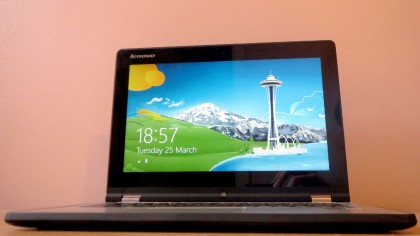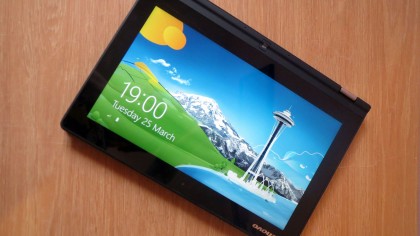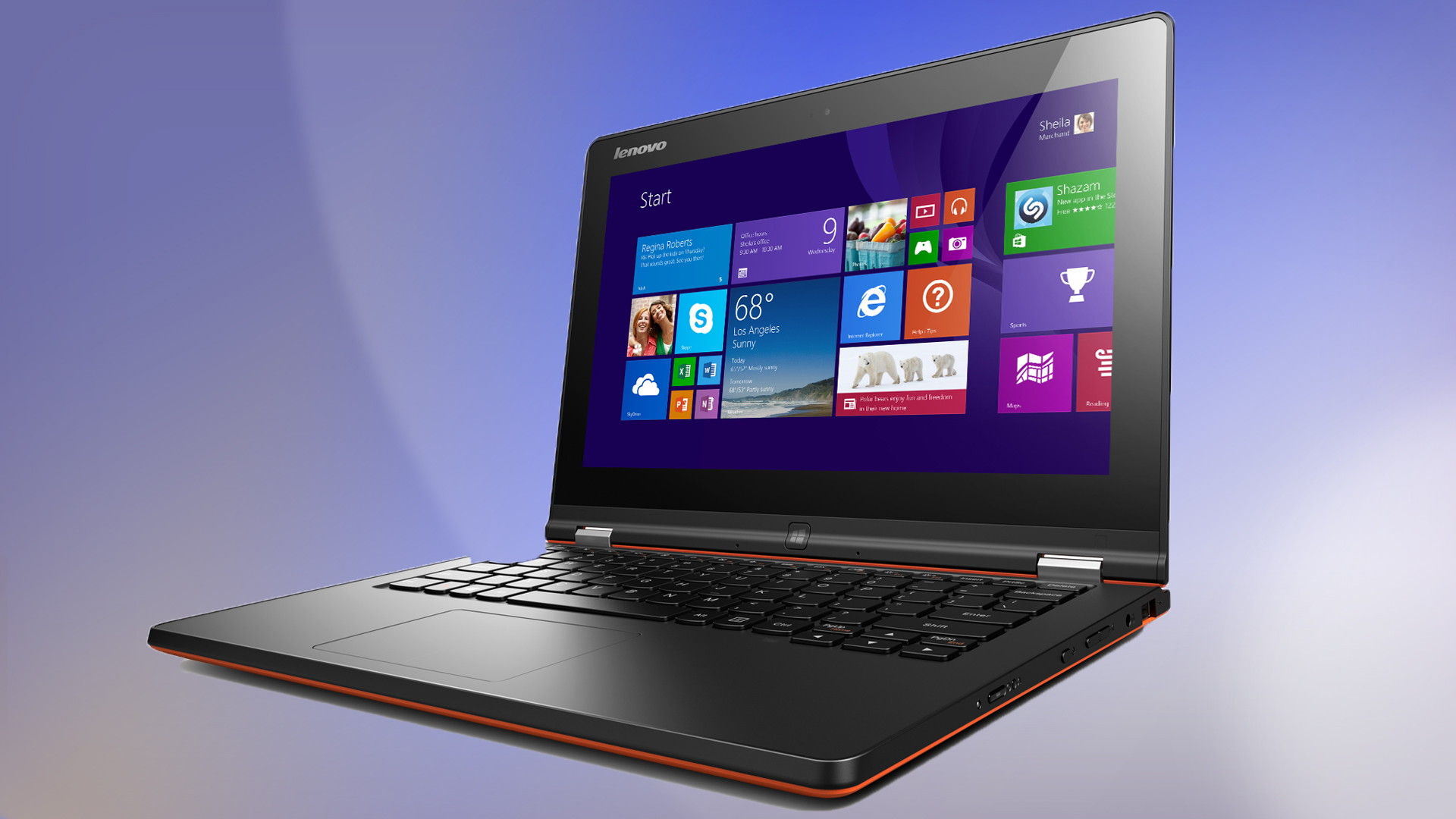Why you can trust TechRadar
PC Mark 8
Home: 1,221
Home high-performance battery: 4hr 15mins
Home power-saving battery: 6hr 14mins
3D Mark:
Ice Storm: 21,438
Cloud Gate: 1,594
Fire Strike: Wouldn't run
Dirt 3:
1,366 x 768 low: 25fps
1,366 x 768 ultra low: 28fps
Cinebench 11
CPU: 1.77
GPU: 7.8fps
Cinebench R15:
CPU: 147cb
GPU: Wouldn't run
Geekbench:
Single core: 1,019
Multi-core: 3,381
Hard disk:
Sequential read: 104MB/s
Sequential write: 83MB/s
The Yoga isn't exactly a speed demon. It's powered by an Intel Pentium N3520 processor, which shares the same architecture as Intel's latest Bay Trail Atom chips. Its specification sits between those weak parts and the low-power Core-edition CPUs inside the Lenovo's rivals, with four cores clocked to between 2.17GHz and 2.42GHz. It's accompanied by 4GB of RAM and a 500GB hard disk – there's no room in this budget for an SSD.

Despite the modest specification, the Pentium held its own against some of its rivals. In our first Cinebench test the Pentium scored 1.77, which is better than the Toshiba and Acer's Core i3 chips. Unsurprisingly, the Sony and Asus machines were both better; the Core i7 chip inside the Asus scored 580cb in the latest Cinebench test, while the Lenovo's Pentium could only manage 147cb.
The Lenovo's HD Graphics core is made from Ivy Bridge silicon rather than Haswell hardware, so it's no surprise it's slow. In 3D Mark's mid-ranking Cloud Gate test the Yoga scored 1,594, which is behind every other hybrid we've mentioned.
The Lenovo's 500GB hard disk limped through AS SSD's sequential hard disk tests with read and write scores of 104MB/s and 83MB/s. They're average results, even for hard disks, and boot times were no better: 33s with Windows 8's Fast Startup turned off, and a middling 19s with this feature activated.
None of those results are impressive, but the Yoga worked reasonably well. The Windows 8.1 Start screen zipped left and right smoothly, and apps from the Windows Store had no issues. Desktop mode was smooth, too, and we had no issues multi-tasking with basic apps like word processors, web browsers and media players.
Loading times were occasionally slow thanks to the hard disk, and more intensive applications struggled to run smoothly. This is no gaming system, either: Windows Store titles ran well, but DiRT 3 could only manage 28fps, even at Ultra Low quality.

The Yoga lasted for 4hrs 15mins in PC Mark 8's Home Battery Life benchmark, which is an average result: a little better than the Toshiba Satellite, the equal of the Acer, but slower than the Sony and Asus. That result improved by two hours when we used Power Saver mode and dimmed the screen, but getting a day of use from this system will be difficult – and, by tablet and Ultrabook standards, the Yoga isn't great either.
The screen's 1,366 x 768 resolution is mid-range, too, and benchmark results were mixed. The Yoga's 369cd/m2 brightness is superb – more than 100cd/m2 better than the Toshiba – and its contrast ratio of 900:1 is good, too; better than the W30t, but a little short of the Sony.
The Delta E of 4.7 is mediocre, though, and the measured colour temperature of 6,975K is too far from the 6,500K ideal figure – it means images on this screen are too cool and a little insipid. The Lenovo's panel can only display 66.7% of the sRGB colour gamut, with certain red, blue, purple and green tones falling short.
Viewing angles are excellent and, while the screen is glossy, we had few issues with reflections. Despite this, the poor colour accuracy and low resolution mean this panel is only suited to basic work and play.
The speakers are better. The two units on the Yoga's underside pump out surprising volume, and the mid-range dominates thanks to a chunky, full sound. The high-end is quite crisp, but there's not much bass.
Mike has worked as a technology journalist for more than a decade and has written for most of the UK’s big technology titles alongside numerous global outlets. He loves PCs, laptops and any new hardware, and covers everything from the latest business trends to high-end gaming gear.
